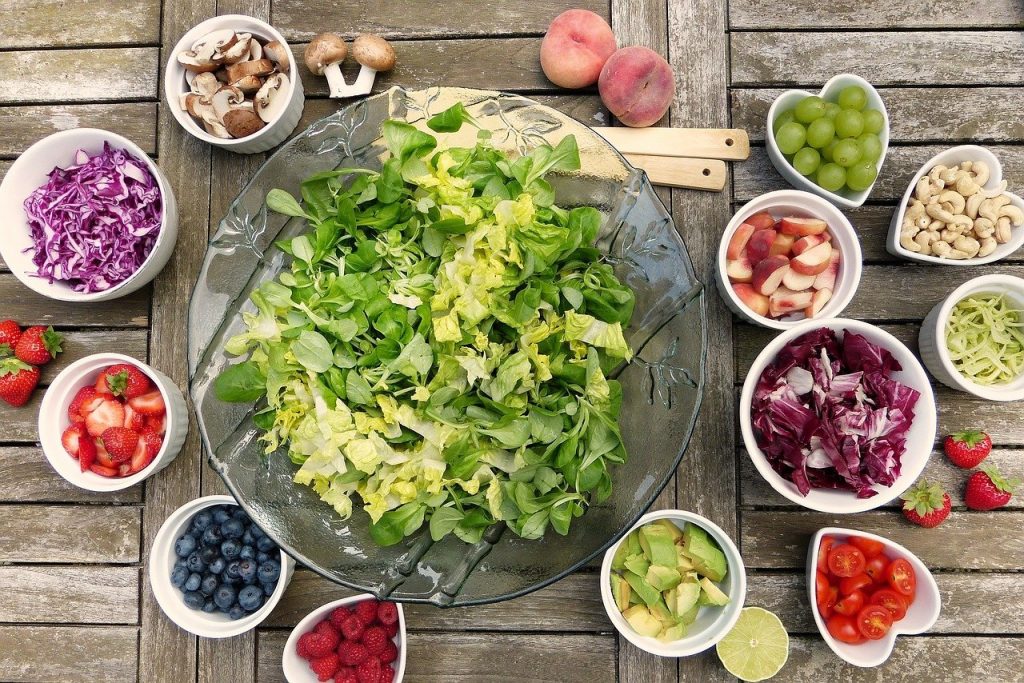Getting the right amount of vitamins and minerals helps your body function well and keeps you healthy. Vitamins and minerals are an important part of a healthy diet in both men and women, but the needs for and effects of these nutrients can vary between the two groups. Let’s take a closer look at some of the vitamins and minerals that are especially important for women’s health.

Calcium
- Calcium plays an important role in keeping bones strong and protecting against osteoporosis and painful bone fractures as we age. It also helps carry messages from your brain to your muscles.
- Women need between 1,000-1,200mg of calcium per day depending on their age. Dairy products, dairy substitutes like soy milk, fortified products, and dark green leafy vegetables are all good sources of calcium.
Vitamin D
- Getting enough vitamin D is necessary for your body to properly absorb and use the calcium in the foods that you eat to build strong bones. It also plays an important part in reducing inflammation and keeping your immune system strong so you don’t get sick.
- Your skin can make some of the vitamin D you need when it’s exposed to sunlight. Fatty fish like tuna or salmon and fortified foods can help you meet the rest of your needs. Women need 15 mcg (600 IU) of vitamin D per day.
Folate
- Folate, also called folic acid, is important for preventing neural tube birth defects and premature births. Folate also plays a role in making red blood cells and DNA, and it can help lower blood levels of homocysteine, reducing the risk of heart disease.
- Women of childbearing age should get at least 400mg of folate each day. Dark leafy green vegetables, oranges and orange juice, whole grains, nuts, beans, and enriched cereals can all be good sources of folate.
Iron
- Women have greater iron needs than men do for a few reasons. For example, women who are menstruating naturally lose iron during their monthly periods, while women who are pregnant need enough iron for themselves and their growing babies. It can also be difficult for women to eat enough iron-rich foods to meet their needs.
- Iron plays an important role in transporting oxygen from the air that you breathe to all of the cells in your body.
- Low iron can put women at risk for iron-deficiency anemia, a condition where your red blood cells aren’t able to transport as much oxygen as they normally can. Your heart must pump harder to make sure enough oxygen is transported around your body, which can leave you feeling tired, weak, dizzy, and cold.
- Depending on their age, women need 8-27mg of iron each day. It is easier to absorb the iron found in animal foods like lean red meats, liver, chicken, seafood, or oysters compared to iron found in plant-based foods like enriched cereals and breads, beans, dark chocolate, spinach, and tofu.
Antioxidants
- Vitamins C, E, and beta-carotene (a precursor to vitamin A) all have antioxidant properties. Diets rich in these vitamins may help lower the risk for some forms of cancer, heart disease, strokes, and age-related eye disease in addition to helping slow down the aging process.
- Antioxidants “mop up” free radicals that are naturally produced by the body. The damage caused by free radicals is thought to contribute to aging and various chronic health problems.
- Antioxidant vitamins are found in fruits, vegetables, and many other foods. Remembering to eat five serving of fruits and vegetables each day and to eat foods of all different colors are easy ways to work towards meeting your antioxidant needs.
Should I take a vitamin and mineral supplement?
For most women, the answer is no. It can be easy to get too much of a certain vitamin or mineral when taking supplements. This can lead to negative health effects and should be avoided.
For most people, it is possible to meet nutrient needs by eating a balanced diet rich in nutrient-dense foods like fruits, vegetables, lean proteins, and whole grains. Getting vitamins and minerals from foods tends to be more beneficial for your health than getting them from supplements.
There are some cases where supplements can be recommended, including if you are unable to meet your needs through diet alone or if you are at a higher risk for a deficiency. Before starting any vitamin or mineral supplement, talk with your doctor to find out if it is right for you.


